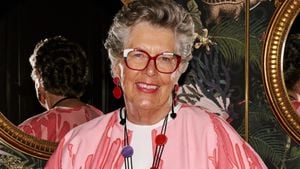Social media platforms have become double-edged swords, especially for athletes who find themselves on center stage. While these platforms offer them the chance to connect with fans and showcase their talents, they often face disturbing backlash from 'keyboard warriors.' Athletes, like many public figures, increasingly experience harassment, bullying, and overwhelming negativity. This troubling reality has sparked conversations about the role of social media abuse, particularly within the sports community. Recent events have shed light on this pressing issue, emphasizing the need for effective responses and support mechanisms.
Maria Gaspar, daughter of Arsenal's sporting director Edu, made headlines when she became the target of online abuse following the Gunners' disappointing performance. After Arsenal's defeat to arch-rivals Chelsea, Maria took to social media to confront the wave of criticism aimed not only at her but also at her father. "Guys, unfortunately, if it continues like this I will have to deactivate my comments from my photos and leave it to the people I follow because I can’t stand it, I can’t stand any more insults," she pleaded, showcasing the emotional toll of constant negativity.
Maria's candid reflections shed light on how such insults affect players and their families. According to her, “Every day I would go on to answer some people who send me messages, but nowadays I can’t go there anymore, there’s only cursing.” Her openness about the emotional burden of social media abuse calls for empathy toward those behind the screen. The long-standing issue of online harassment continues to evoke heated discussions, highlighting the delicate balance between fan engagement and the mental health impacts of constant condemnation.
Similarly, Tasha Ghouri, the first contestant with a cochlear implant on Love Island, faced her share of online bullying after her appearance on the reality show. Much like Maria, Tasha has been vocal about how integral social media is for fostering community, yet how damaging it can also be. After her recent performance on Strictly Come Dancing, she commented on the numerous crass remarks directed at her, bringing this topic back to the forefront. Her father, Tarek, passionately defended her against the continued negativity, stating, "Even last night, some chose to still abuse her (and many other contestants), on Facebook and X with horrid unnecessary hurtful comments."
Tasha’s story, detailed with heartfelt emotion, captures the struggle many modern athletes face when striving for success under public scrutiny. The reactions toward her on social media are disturbing; some of the comments were filled with personal attacks about her voice and communication skills. The personal nature of these attacks exemplifies the sensitivity of the issue, adding complexity to conversations surrounding freedom of speech on social media.
Meanwhile, across the globe, the International Cricket Council (ICC) made strides to tackle similar challenges within women’s cricket by employing AI tools aimed at eliminating online abuse. Spurred by reports of rampant sexism, racist comments, and overall negativity directed at female players, the ICC initiated this social media moderation program during the Women’s T20 World Cup. It was revealed through the program’s findings—nearly one-fifth of analyzed comments contained harmful language.
Working with technology firm GoBubble, the ICC analyzed more than 1.4 million comments across various player and team accounts. Off the 271,100 comments flagged, they can either be described as derogatory or generated by bots. This proactive approach aims not only to protect cricketers but to inspire women and girls to engage actively with the game, free of the fear of online harassment. Finn Bradshaw, the ICC’s Head of Digital, stated, “We heard stories from women and girls who, unfortunately, once they became more public, the abuse they received online can be really inhibiting.”
The ICC’s initiative highlights the necessity of addressing online abuse not just for immediate safety, but also to cultivate future generations of engaged athletes. Sinalo Jafta, a star cricketer who faced her battles with online harassment, noted how the AI tool introduced not only makes her feel safer sharing her experiences and achievements but stands to encourage others. “For players who are comfortable with social media, we love to find ways to showcase their personality… it’s about making the net experience much more enjoyable through kindness instead of cruelty,” she mentioned.
This focus on women's sports is also reflected through other efforts, including the celebration of women athletes' milestones and achievements within their sports communities. The importance of this movement cannot be overstated, as visibility can bring both recognition and the unfortunate reality of public scrutiny.
Online platforms serve as the battlegrounds where admiration for sports heroes coexists with toxic interactions. The whirlwind of troubling behaviors from 'obsessive fans' was highlighted during the recent game between the Liaoning Flying Leopards and Guangzhou Loong Lions, where Guo Ailun, after his long stint with the former, faced hostility as he returned to the court with his new team. The anticipation of his return led to adverse online reactions and personal attacks, as many fans grew frustrated over his comments expressing gratitude at having them support him through transitions. Despite the goodwill behind the words, much like with Maria and Tasha, public perception took over, pushing many including Guo, to navigate the fine line between fan appreciation and entitlement.
Recognizing the blurred lines between supporting athletes and infringing upon their mental health, various stakeholders within the sports industry are advocating for cultural shifts. These shifts are based around creating inclusive and positive environments for players to thrive without the looming threat of negative commentary. Addressing the toxic culture surrounding sports fandom includes encouraging fans to demonstrate respect and support—qualities emphasized as central to fostering not just the sport's growth but the mental well-being of its players.
At the end of the day, athletes are not just entertainers but individuals with feelings. It’s time to prioritize responsible engagement on social media, encouraging fans to uplift their heroes instead of tearing them down. Initiatives by organizations like the ICC serve as catalysts for change, but they must be accompanied by broader societal responsibilities and the continued efforts from athletes themselves to share their experiences and promote kind interactions. Conversations must evolve, focusing not solely on defeating the negativity but also on building community, support, and respect—the cornerstones of any great sporting culture. Only then can social media become the powerful tool for positivity it was meant to be.



